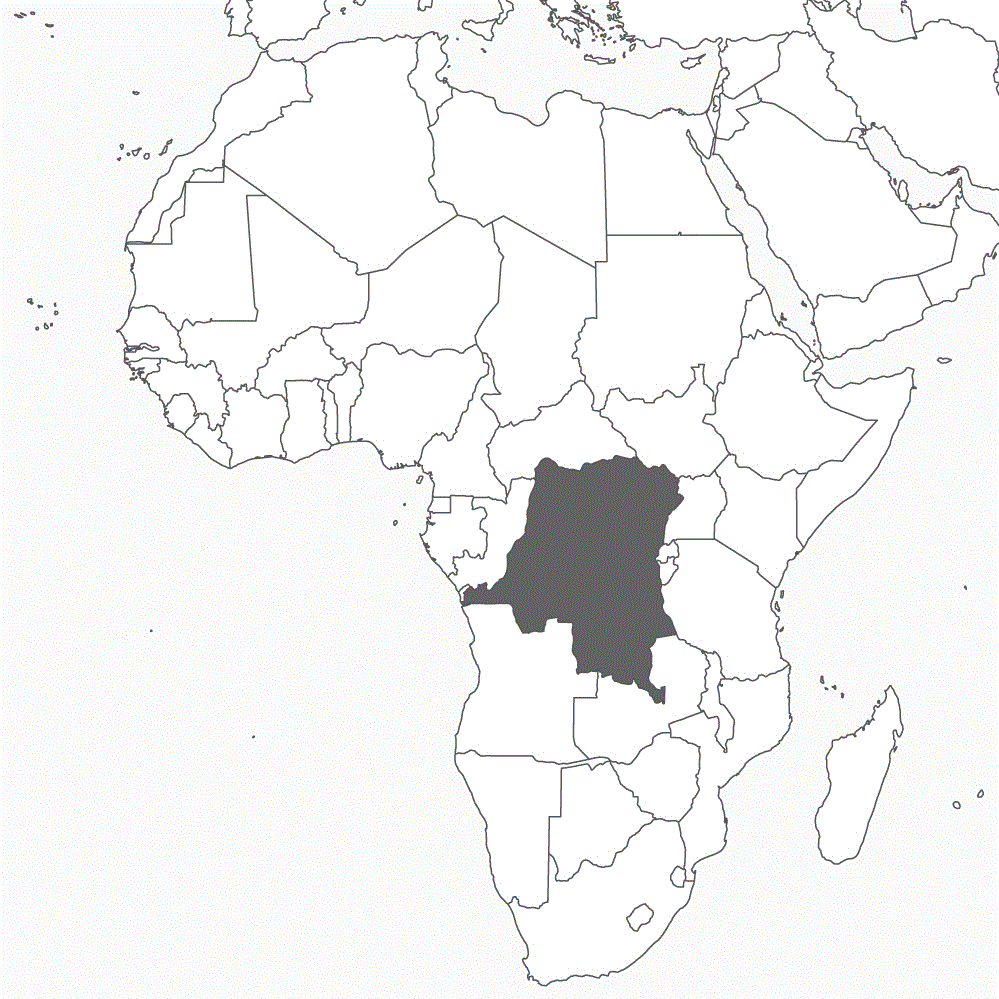War Resources (I)
GOMA/KINSHASA/BERLIN (Own report) - The German government has announced that it will send 500 German soldiers to the Democratic Republic of the Congo. The German troops are being sent, as part of the "stabilization measures," for the planned parliamentary and presidential elections. The Congolese government has several times previously rejected offers of foreign military assistance and is now being put under renewed pressure by Berlin. Behind the scenes in German government agencies, concrete interests in raw materials are playing a role. Documents, made available to german-foreign-policy.com, furnish confirmation. According to these documents, Berlin, for several years, was covering the financing of rebel militias, fighting to split off a part the Eastern Congo, rich in raw materials, to attach it to neighboring Rwanda. According to UN documents, German foreign policy has thus promoted the inter-Congolese war, as did individual diplomatic personnel of the Foreign Ministry, including a former German ambassador. The German government is also sharply criticized in the most recent Congo Report of the UN Security Council. For the upcoming consultations, concerning the new military deployment in Africa, German parliamentarians are being kept in the dark, about the real reasons for the recent government announcements concerning the Congo.
Since 1994 Berlin exercises influence over the Somikivu mining company in the Eastern Congo, which had been created for the exploitation of rare minerals, needed in the production of nozzle engines and rocket parts. The Lueshe mine, run by Somikivu, is considered to be one of the two most important deposits of its kind in the world. The minerals obtained there is among the important raw material deposits of the Eastern Congo, which since the beginning of European colonial rule, has often become cause for dispute among the foreign powers.
Considerations
When, in 1994, a German corporation [1], the private majority shareholder of Somikivu, had to shut down operations in Lueshe because of uprisings, the German government paid him more than 8 million Euros indemnity - and received, in return, the entitlement to future profits from the mining company as well as a trust contract. German government offices have had a say in the affairs of Lueshe ever since - and therefore in the exploitation and application of the internationally coveted mine resources. Berlin permitted the interruption of the work in the mine for several years. The German government, on multiple occasions, also rejected selling the mining company - on grounds of "foreign policy considerations," as was stated in a letter, at the disposal of german-foreign-policy.com, written by the state trustee.
Interests
The economic and geostrategic significance of the Lueshe mines seem to be important enough to Berlin, that the German government even defied decisions taken by the Congolese President, Laurent Désiré Kabila. Kabila had already transferred Lueshe mining rights to an Austrian company in 1999. This was done to break the German blockade and to obtain, for the Congo, urgently needed tax and customs returns, from the mining enterprise. In vain. "Through this action, the interests of the Federal Republic of Germany are substantially affected," responded the German side in April 2000, and announced: "the Federal Republic of Germany (...) will not tolerate damage caused this way." In fact, still today, German politicians explain, that the mining rights at Lueshe are in the hands of the German controlled Somikivu. The question of ownership is, to say the least, "unsettled", says Berlin.
Security
A year later, rather than to the central government, its adversaries, the "Rassemblement Congolais pour la Démocratie" (RCD) rebel militias, were given influence over Lueshe. The secessionists had been fighting in the region around the mine and other areas of Eastern Congo, making wealth from raw materials for their own benefice, and offering protection from cash payments. "In a war situation and the need to finance it", writes the RCD, foreign enterprises will be granted "protection". Berlin immediately began implementing in Lueshe the mining measures that it had refused the central government because of the dispute about the alleged ownership rights. The mine was used as security, to be able to materially have an influence in the Congolese conflict - either on the side of the central government or of their adversaries.
The Federal Ministry of the Economy
A German, who is well-informed on the regional situation, served as liaison to the rebel militias. He boosted the yield of the mine, refused to pay tax and customs duties to the central government and with the immense profits, had developed a network of enterprises also active in Germany - without recognizable resistance from the government's trustee. German foreign policy makers have also ignored the protests of international organizations. Even though the German, Karl-Heinz Albers, has been denounced, as one the main financiers of the Eastern Congolese war and named in United Nations' reports, it seems not to be the opportune moment to pursue him for German investigators. Even the most recent "Congo Group" report, January 2006, criticizes the protecting hand held by a German authority over Albers - the hand of the Ministry of the Economy.[2]
Completion
For nearly five years, the United Nations has been demanding that the German government take measures against activities promoting war in Lueshe. But rather than terminating this geostrategic adventure in the Congo, Berlin has banked on the disruption of the country, and now uses the resulting disorder as the pretext for sending in troops - the military completion of a resources operation.
german-foreign-policy.com will keep you informed of further developments in the German Congo operations.
[1] Gesellschaft für Elektrometallurgie (GfE) [2] Bericht der Expertengruppe für die Demokratische Republik Kongo; Security Council Document S/2006/53
